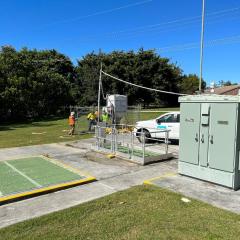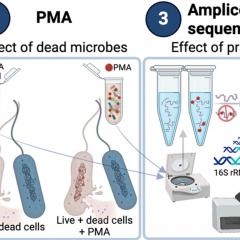Originally published on QWMN
The ‘Urban Design Challenge’ took off at The University of Queensland on 21 June 2021. It taught participants the value of multidisciplinary teamwork in addressing complex urban issues through integrated water and energy design for sustainable and resilient cities.
The Urban Design Challenge challenged multidisciplinary teams of planners, architects, engineers and others to create new urban developments that are more liveable, sustainable, resilient and resource efficient.
In a fast-paced competitive yet fun environment, nurturing collaboration and learning, seven teams of five students competed in rounds to find ways to create integrated water and energy systems that complement existing infrastructure for sustainable urban infill development. Participants rapidly learnt and applied the new urban water model SUWMBA (Site Scale Urban Water Mass Balance) from the CRC Water Sensitive Cities and Infill Project to quantify the metabolic performance of alternative configurations of building, infrastructure and landscape design. This game-based tournament challenged masters students across architecture, chemical, civil and mechanical engineering, and planning students to explore performance-based design and planning options in realistic scenarios.
The Challenge took place over five days, comprising information sessions on water, energy, planning, and urban design, as well as site visits. Each team developed a management goal, mapped systems, quantified targets and responded to specific challenges through strategic planning and design propositions. They received real time and expert feedback from industry and academic judges, overseen by impartial referees. Following the intensive training, each team had three hours to build site-specific, architectural and engineering 3D designs from Lego and creative materials.

All teams addressed the scenario challenges of water security, peak electricity management and increasing urban density consistently in detail. Team 1, “Charly & The Consulting Factory,” and Team 6, “Urban-Niche,” were the winners of best designs. The independent judging panel was comprised of Sue Dewar (Lendlease), Nick Morgan (Brisbane City Council), Axel Braunsberger (Energy Queensland), and Brian McIntosh (International Water Centre).
Professor Steven Kenway (organiser of the event and previous CRC for Water Sensitive Cities IRP4 project leader) explained the event objectives: “The tournament encourages participants to understand and evaluate the key issues, pressures, drivers and trends in urban water and energy management and their interdependencies and connections. It is also an invaluable opportunity for participants to learn how to work together and communicate effectively across disciplines. It’s so important for the participants to learn how to appreciate and critically analyse other perspectives. Peer-to-peer learning is a key component of the process.”

Axel Braunsberg from Energy Queensland summarised from industry partners: “It was great to see the groups really coming a long way from the start to finish.” This is the second time the Challenge has been completed as a five-day event, supported by a University of Queensland’s Teaching Innovation Grant. It was proudly supported by Ergon Energy, Unitywater, Energy Queensland, Bligh Tanner, the Advanced Water Management Centre (UQ), International Water Centre and Urban Enquiry.

Several UQ schools contributed to organising and managing the event, with leadership from Paola Leardini (Architecture), Tony Heynen (Sustainable Energy), Sebastien Darchen (Planning), Ilje Pikaar (Civil engineering). Highly relevant information sessions were given by Cathryn Chatburn (Urban Enquiry), Mark R. Gibson (BCC), Mark Evans (South Bank Parklands), David Hamlyn-Harris (Bligh Tanner), Piet Filet (IWC), Alice Strazzabosco (QUT), Brad Taylor (UQ), Neil Horrocks (UQ) and Mojtaba Moravej (UQ). Steven Conrad (Colorado State University, USA) connected via Zoom.
For registrations for the 2022 Urban Design Challenge stay tuned to the ACWEB site or the UQ Faculty of Engineering, Architecture and Information Technology news website.





